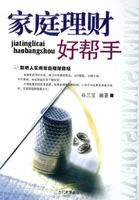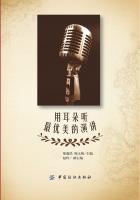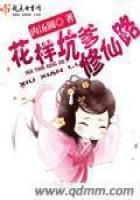Thus Adam Smith,(38)immediately after having observed that there are two sorts of values,one value in use,the other value in exchange,completely abandons the first,and entirely occupies himself all the way through his book with exchangeable value only.This is what you yourself have done,Sir;(39)what Mr.Ricardo has done;what I have done;what we have all done:for this reason,that there is no other value in political economy than that which alone is subject to fixed laws;that that alone forms,distributes,and destroys itself conformably to invariable rules,which may become the subject of a scientific study.By a necessary consequence,the price of each article being its exchangeable value in money,there are no other than current prices in political economy.What Smith calls natural prices have nothing more natural in them,than all the rest.It is the cost of production,the price current of productive services.
I do not pretend to deny that you have in Mr.Ricardo a powerful and respectable auxiliary.He was against you in the question of Vent,he contends with you on the question of Value,but notwithstanding my connexion with him,and the mutual esteem we entertain for each other,I have not hesitated to combat his opinions.(40)Our first inclination for each other,and I am bold to say yours and mine also,was it not for the sake of the public good and of truth?
These are Mr.Ricardo's words:"Value is essentially different from wealth,for value does not depend upon the abundance (of the things necessary or it agreeable,)but on the difficulty or facility of their production.
The manufactural labor of a million of persons will always produce the stone value,but not always the same wealth.By more perfect machines,a more practised ability,a better divided labor,the opening of fresh markets giving rise to more advantageous exchanges,a million persons may produce double and treble the quantity of necessary or agreeable things,than they could produce in another social situation,and still they would add nothing to the total value.''(41)This argument,founded on uncontested facts,appears perfectly to a~ree with the opinion you maintain.The question is,how these facts strengthen instead of weaken the doctrine of value,the doctrine which establishes,that wealth consists in the value of the things we possess;confining this word value to the only admitted and exchangeable value.
In fact what is value,but that quality susceptible of appreciation,susceptible of more or less,which is inherent in the things we possess.
It is the quality which enables us to obtain the things we want,in exchange for the things we have.This value is the greater,in proportion to the quantity which the thing we have can obtain of that we want;for instance,when I have occasion to change my horse for wheat,if my horse is worth six hundred francs,I shall receive double the quantity of bushels of wheat than if he were worth only three hundred francs,and at the same time that part of my wealth would be double.And as the same reasoning may he generally applied to all I possess,it follows that our wealth depends on the value of the things we possess.This is a consequence that no one can reasonably refuse to admit.
You cannot on your part deny,says Mr.Ricardo to me,that we are not richer,when we have more of the necessary or agreeable things to consume,whatever may be their value in another sense.This in fact I admit,but is it not to have more things to consume,having the power to acquire them in greater quantity?To possess more wealth is to have in our hands wherewith to buy a larger quantity of useful things,a greater quantity of utility,in extending this expression to every thing that is necessary or agreeable to us.Now there is nothing in this proposition,which is contrary to what is true in the definition which Mr.Rieardo and yourself give of wealth.
You say that wealth is in the quantity of necessary or agreeable things we possess.I say so too,but as these words,quantity of necessary or agreeable things ,have a vague and arbitrary meaning,which eannot be admitted in a good definition,I define them by their exchangeable value;then the limitation of the idea of utility is the being equal to any other utility,which other persons eonsent to give in exehange for that you possess;from that time there is equation,one value can be compared with another by the means of a third.A sack of wheat is a riches equal to apiece of cloth,when one can be exehanged against the other for an equal number of erowns.This will serve as a basis for comparisons,will admit of measuring an augmentation,or a diminution --in a word,this is the basis of a science.
ltrithout this,political economy does not exist.It is this consideration alone which has brought it to light:it is so essential,that you involuntarilv do it homage,and there is no one of your arguments in which it is not either expressed or understood;otherwise,you would have caused the science to recede,instead of enriehing it with fresh truths.
At the same time that your and Mr.Ricardo's definition fails in preeision,it fails also in extent.It does not embrace the whole of what our wealth is composed of.What!our wealth eonfined to material objects either neeessary or agreeable!And our talents?What then do you take these for?Are they not productire funds?Do we not derive income from them?Greater or less incomes,the same as we derive a greater income from an acre of good land than from an acre of brambles?I know some clever artists,who have no other income than what they derive from their talents,and who are opulent:
according to your idea they would be no richer than a mere dauber.
You cannot deny it,that every thing that has an exchangeable value makes part of our riches.They are essentially composed of the productive funds we possess.These funds are either land,capital,or personal faculties.


